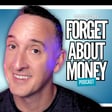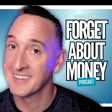
Breaking the Poverty Cycle: Jackie Cummings Koski's Path to $1.3 Million Net Worth
Join us in this episode of the 'Forget About Money' podcast as Jackie Cummings Koski shares her incredible journey from poverty to financial independence, retiring at 49 with a $1.3 million net worth on a modest salary.
Discover how Jackie overcame adversity, maximized her 401(k), and invested wisely to break free from the poverty cycle. Her dedication to financial literacy and empowering others in diverse communities is truly inspiring.
Timestamps:
0:00:00 Transformative Journey
0:04:46 Shaping Personal Finance Approach
0:06:31 Doing More with Money
0:10:17 Transition to Financial Knowledge
0:17:16 Sharing Financial Wisdom
0:23:03 Transition to Advocating
0:25:27 Meeting People Where They Are
0:28:06 Notable Success Story
Follow 'Forget About Money' Podcast:
Instagram: @forgetaboutmoney
YouTube: @forgetaboutmoneypodcast
Get Jackie's Book: Unlock financial wisdom with Jackie Cummings Koski's book, "Money Letters 2 My Daughter," available on Amazon: Get Your Copy here: https://www.amazon.com/Money-Letters-2-My-Daughter/dp/0989186008
✨ Engage with the Content:
Like if Jackie's journey inspires you! Comment your insights on overcoming poverty. Subscribe for more empowering stories and financial advice. Share this episode to spread the message of financial independence!
#PovertyCycle #FinancialFreedom #JackieCummingsKoski #InvestingWisely #RetirementGoals #MoneyManagement #PersonalFinanceTips #Empowerment #FinancialLiteracy #ForgetAboutMoneyPodcast #MoneyLetters2MyDaughter #WealthBuilding #Inspiration

